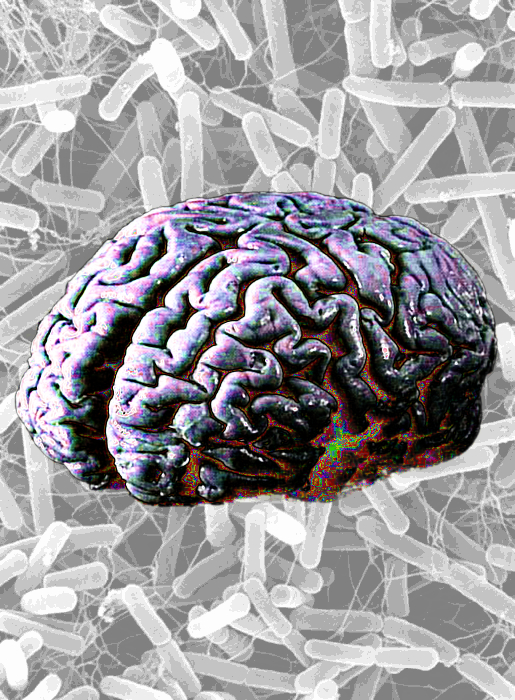Experts outline gut-brain balance
 The leaders of a brand new field say ‘psychobiotics’ could change the world.
The leaders of a brand new field say ‘psychobiotics’ could change the world.
Gut bacteria can speak to the brain in ways that affect mood, appetite, and even circadian rhythms.
Scientists in the growing field of psychobiotics say that it is possible to control the communication between our bacteria and out brains, and are exploring emerging strategies for planting brain-altering bacteria in the gut to provide mental benefits.
Studies in the last 10-15 years have hinted at how deep the gut-brain connection could be.
In mice, enhanced immune function, better reactions to stress, and even learning and memory advantages have been attributed to adding the right strains of bacteria.
While human studies are more difficult to interpret (largely because mood changes in response to probiotics are self-reported), physiological changes, such as reduced cortical levels and inflammation, have been observed.
“Those studies give us confidence that gut bacteria are playing a causal role in very important biological processes, which we can then hope to exploit with psychobiotics,” says Philip Burnet, an associate professor of psychiatry at the University of Oxford.
“We're now on the search for mechanisms, mainly in animal models. The human studies are provocative and exciting, but ultimately, most have small sample sizes, so their replicability is difficult to estimate at present. As they say, we're ‘cautiously optimistic’.”
Most researchers now agree that the bacteria-gut-brain axis involves the nervous system of the intestines, the immune system, the vagus nerve, and possibly gut hormones and neurotransmitters (e.g., serotonin and dopamine).
But there are varied levels of excitement about the idea of ‘psychobiotics’ as methods of treatment for psychological disorders and enhancing cognition.
For example, in mice, psychobiotics can increase brain-derived neurotrophic factor (BDNF), which is key to learning and memory, but there is no way to know whether psychobiotics affect BDNF in humans.
Additionally, some reviews have found no overall benefit of probiotic ingestion in humans, but probiotics are only part of the story.
“Prebiotics (nutrition for gut bacteria) are another channel to alter gut bacteria,” Burnet says.
“We call for an even further widening of the definition of 'psychobiotics' to include drugs such as antidepressants and antipsychotics, and activities such as exercise and eating, because of their effects on gut bacteria.”
For now, consumers of probiotics and prebiotics should be skeptical about products currently advertised to have psychobiotic effects.
Such supplements could certainly act as “add-on” therapies for antidepressants or antipsychotics, but even that use would require more questions to be answered about strains of bacteria; their functions, mechanisms, and whether they offset other benefits.
“Psychobiotics are a long way from their true translational potential. It's a little boring to say that we need more studies, but that is always the case in any academic discipline,” Burnet says.
“The technology and resources already exist for such investigations, so though we are enthusiastic, the enthusiasm needs to be tempered and channelled toward answering the core mechanistic questions.”
The growing field is explained in more detail in a review published in the journal Trends in Neurosciences.








 Print
Print